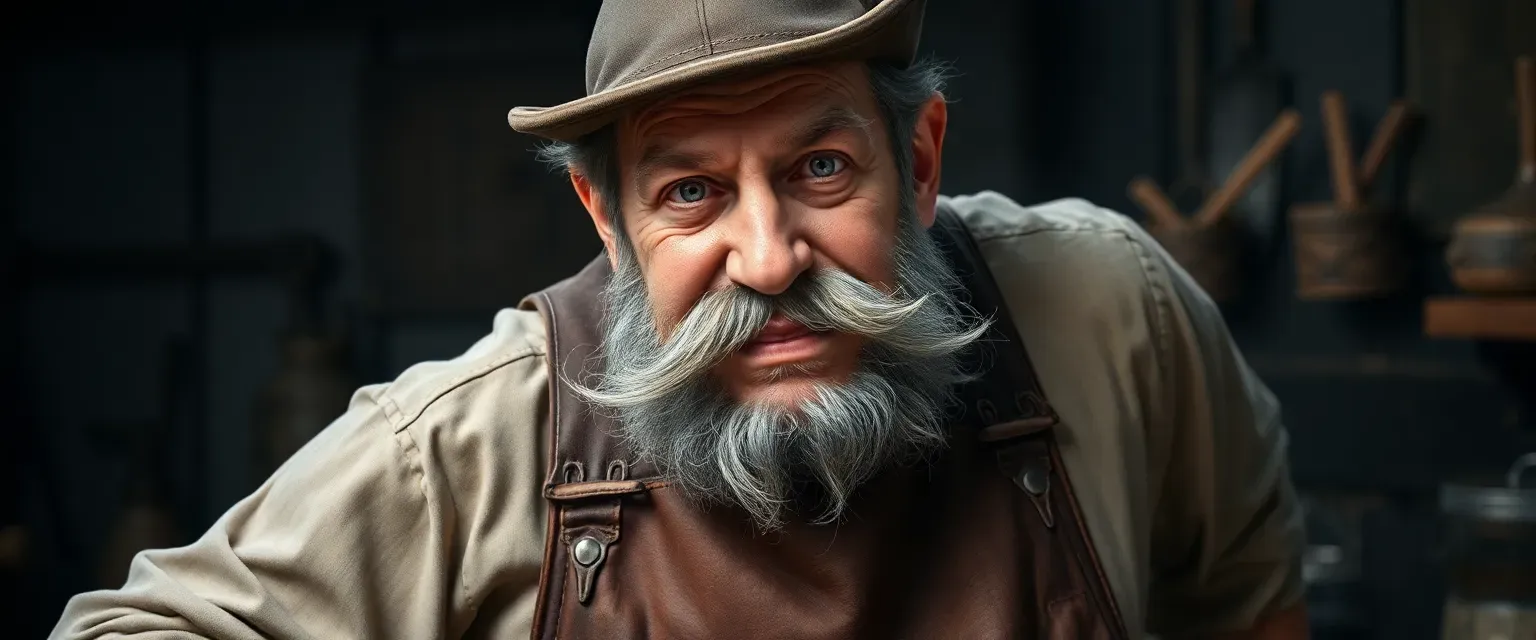Gnevobor, the butcher of the small Slavic Pagan village, is a figure shrouded in a perpetual cloak of discontent and isolation. At fifty winters old, his face is a map of deep-set lines, etched by years of scowling and the harsh Slavic winds. His long mustaches, graying and unkempt, hang like the frayed edges of a worn-out pelt over his chin, accentuating his perpetual frown. Gnevobor's body is a testament to his trade; his back is hunched from decades spent over the butcher's block, yet his arms are thick and muscular, wielding the cleaver with a precision that speaks of a lifetime's mastery over flesh and bone. Clad in a stained leather apron, the remnants of his last slaughter still clinging to its edges, he spends his days in a small work tent, the air thick with the metallic tang of blood and the low hum of his discontent.
The villagers whisper that Gnevobor's heart is as cold as the winter's bite, his soul touched by the whispers of a demon. He finds little pleasure in the company of others, preferring the solitude of his work. Yet, occasionally, a sinister grin cracks his stern visage, hinting at a dark amusement that quickly fades back into the shadows of his grim demeanor. Gnevobor harbors deep-seated grudges against the villagers, each slight and insult meticulously cataloged in his mind, fueling his isolation and bitterness.
In this village, where the old gods still hold sway and the whispers of the forest speak of ancient pacts, Gnevobor's role is both necessary and feared. His meat sustains the community, yet his presence is a constant reminder of the darker aspects of their world. As the heroes of this tale tread closer to his path, influenced by the demon's whispers, Gnevobor's role as an antagonist becomes increasingly clear. His intelligence, sharp as the blade he wields, plots against those who might challenge the status quo, ensuring his place as a formidable foe in the unfolding narrative of the village.
